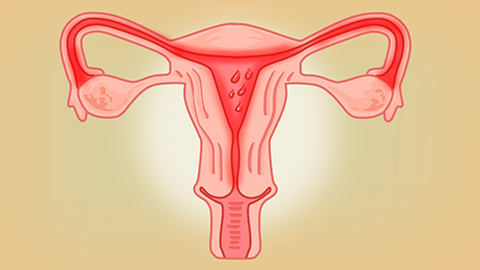What medication can be taken to eliminate uterine polyps?
Generally, uterine polyps are commonly associated with endocrine disorders and inflammatory stimulation. Common symptoms include abnormal uterine bleeding and prolonged menstrual periods. Patients may follow medical advice to use medications such as progesterone soft capsules, dydrogesterone tablets, levonorgestrel tablets, drospirenone and ethinyl estradiol tablets, and metronidazole tablets to assist in eliminating or controlling the polyps. Detailed explanations are as follows:
1. Progesterone Soft Capsules
These belong to the progestin class of drugs. By supplementing progesterone, they inhibit excessive endometrial hyperplasia, promote the transformation of the endometrium into the secretory phase, regulate hormonal balance, and reduce the hormonal basis for polyp formation. For smaller functional uterine polyps, cyclical administration can promote polyp atrophy and shedding, achieving elimination. This is suitable for patients not currently wishing to undergo surgery.
2. Dydrogesterone Tablets
This is a synthetic progestin with a mechanism of action similar to progesterone. It acts on the endometrium to inhibit endometrial hyperplasia, improves the endocrine environment, and prevents further growth of polyps. It also regulates the menstrual cycle and reduces abnormal bleeding. For hormone-dependent uterine polyps, regular use can help shrink or even eliminate the polyps, particularly suitable for perimenopausal or younger patients.

3. Levonorgestrel Tablets
Although administered intrauterine, these tablets slowly release levonorgestrel within the uterine cavity, directly acting on the endometrium to inhibit endometrial hyperplasia and reduce estrogen receptor activity in the endometrium, thereby decreasing the triggers for polyp formation. They can provide long-term control of polyp recurrence and also help shrink small polyps, suitable for patients requiring long-term management.
4. Drospirenone and Ethinyl Estradiol Tablets
This is a combined short-acting oral contraceptive containing both estrogen and progestin components. It inhibits ovulation, regulates hormone levels in the body, maintains a stable endometrial state, prevents excessive hyperplasia, and thereby inhibits polyp growth. For uterine polyps caused by endocrine disorders, regular use helps regulate hormonal balance and aids in eliminating polyps, while also improving symptoms of menstrual irregularities.
5. Metronidazole Tablets
This is an anti-anaerobic bacterial medication. Although it does not directly eliminate polyps, when uterine polyps are accompanied by infections such as endometritis, inflammatory stimulation can exacerbate polyp formation and growth. In such cases, metronidazole tablets can kill pathogenic bacteria within the uterine cavity, control infection, reduce inflammatory stimulation to the polyps, and create a favorable environment for polyp elimination. It should be used in combination with hormonal-regulating medications.
Regularly maintain good vulvar hygiene, avoid unclean sexual intercourse, and reduce the risk of intrauterine infection. In terms of diet, avoid excessive intake of estrogen-rich foods such as royal jelly and snow frog oil, as they may affect disease recovery. If the polyps do not shrink or continue to grow after drug treatment, timely medical evaluation for surgical treatment options is recommended.




